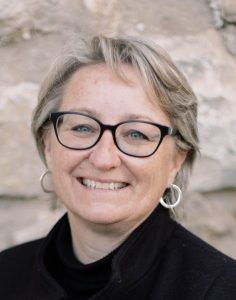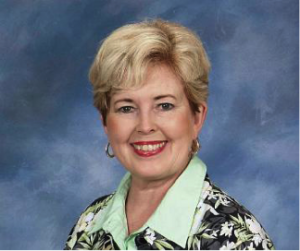
by Steve | May 18, 2020 | Magazine, Magazine Articles, May/June 2020
 By Heather Hahn –
By Heather Hahn –
The pandemic-forced postponement of General Conference has left United Methodist financial leaders with big questions about the denomination’s budget.
The General Council on Finance and Administration board spent much of a March 27 teleconference grappling with how to act within the bounds of church rules while recognizing the new economic realities caused by COVID-19.
The board was dealing with the unprecedented situation of needing to set 2021 apportionments — that is, requested giving from conferences — before the denomination’s top lawmaking assembly can adopt an apportionment formula for the 2021-2024 general church budget.
Ultimately, a majority of GCFA board members decided they had no choice but to extend into 2021 the apportionment calculations approved by the 2016 General Conference.
A majority also voted to request that the Judicial Council, the denomination’s top court, rule on whether the board’s action was in keeping with church law. Neither voice vote was unanimous.
Rick King, GCFA’s chief financial officer, told the board that whatever apportionments the next General Conference sets would apply retroactively to the start of 2021. General Conference organizers are looking at rescheduling the event for next year.
“What we are trying to do now is to make sure there is some budget in place so the general church can continue,” King said.
Ken Ow, a GCFA board member with long experience in the U.S federal budget process, likened the board’s action to a continuing resolution. The U.S. Congress passes a continuing resolution to fund government functions until regular appropriations are enacted.
“A continuing resolution usually operates at the same rate as the previous year,” Ow said. Still, a number of board members expressed concern that using the higher apportionment base rate approved in 2016 would make the board look out of touch in a health crisis causing rising death, unemployment and canceled worship services around the globe.
“I’m thinking of how this increase in the base rate will significantly impact our annual conference ministries,” said the Rev. Dustin Petz, GCFA board member and chief executive of the Kansas Area United Methodist Foundation.
“As this goes up, their ability to do ministry in their conferences will go down, which is where I think there is a tremendous need, given our current state of pandemic.”
Vasanth Victor, a board member from the Greater New Jersey Conference, echoed that concern. “This is just an unreasonable burden to put on annual conferences,” he said. “And it’s just going to make them unable to pay so they won’t pay.”
The GCFA board already was planning to submit to the next General Conference the smallest denominational budget in more than 30 years.
Petz moved that GCFA request apportionments based on the reduced base rate it was proposing rather than the significantly higher rate the 2016 General Conference previously approved. That motion did not pass.
The sticking point for a number of board members was whether GCFA had the authority to request apportionments using a formula General Conference had not yet approved.
Bryan Mills, GCFA’s interim general council, told the board he and his team searched through the Book of Discipline, the denomination’s policy book, and Judicial Council decisions for guidance.
“We have found nothing that addresses what happens if General Conference fails to meet in the year it was originally scheduled,” Mills said. “There is complete silence.”
However, he added, the Judicial Council has consistently ruled that neither General Conference nor annual conferences can delegate their budget authority to some subordinate group to make decisions on an interim basis.
“We don’t see how we as GCFA could have any authority to do something different than what the General Conference has already decided,” Mills said.
“Unfortunately, it’s not maybe what we want to do or what we believe is reflective of reality. But it’s our conclusion that this is the most viable option and hopefully most consistent with the (denomination’s) constitution.”
Mary A. Daffin, a lawyer and a Texas Conference chancellor, agreed with Mills. As chair of the board’s Legal Responsibilities and Corporate Governance Committee, she made the motion for the Judicial Council to rule on GCFA’s actions.
She also acknowledged some trepidation in going to the Judicial Council. “When I am in the courtroom, I do not like to ask a question I do not know the answer to,” she said.
The Rev. Moses Kumar, GCFA’s top executive and a licensed local pastor, told the board that general church agencies and other denomination-wide ministries were already preparing for the coming reductions. This year, most church agencies are budgeting for a 70 percent to 75 percent apportiment collection rate.
Bishop Mike McKee, GCFA board president and leader of the North Texas Conference, also assured the board that GCFA’s communications to conferences will recognize the ongoing pandemic and the greater needs conferences face.
“We’re going to say what needs to be said,” he promised, “so it doesn’t look like we’re in another universe.”
Heather Hahn is a multimedia news reporter for United Methodist News.

by Steve | May 18, 2020 | Magazine, Magazine Articles, May/June 2020

Chaplain (Capt.) Amor Woolsey, a United Methodist elder, has been mobilized with the Maryland Army National Guard as it sets up coronavirus testing sites and distributes food in the Baltimore area. Woolsey’s full time job is leading two United Methodist churches in Maryland. Photo by Sgt. 1st Class Michael Davis Jr.
By Sam Hodges –
The skies were gray. The faithful had to wear masks and keep their distance. But Lt. Cmdr. Genevieve Clark, a United Methodist chaplain in the U.S. Navy, was still able to lead an Easter sunrise service on the flight deck of the USNS Mercy, a hospital ship deployed to Los Angeles to help in the coronavirus pandemic.
“I tried to encourage these sailors that although there is chaos and even clouds literally covering the sunrise during the Easter crisis of 2020, we can still be and are still being the hands and feet of Jesus,” Clark said.
About three weeks ago, Clark was assigned to the Naval Medical Center in San Diego and looking forward to a summer deployment aboard the USS George H.W. Bush. Then the coronavirus pandemic gripped the U.S., and the USNS Mercy was tasked with taking on hospital patients to free up bed space for expected coronavirus victims. Chaplains would be needed. “I was offered the opportunity to come aboard the ship,” Clark said. “I had about 24 hours’ notice.” For now, Clark lives on the USNS Mercy, temporarily separated from her husband.
“We care for everyone on board, regardless of religious affiliation or no religious affiliation,” she said of herself and fellow chaplains. “We do that by walking around, visiting with people, hearing their stories. If there’s something we can help them with that’s specifically spiritual, we try to talk to them in their spiritual language.”
Earlier on April 12, and across the country, Maryland Army National Guard Chaplain (Capt.) Amor Woolsey led Easter morning services at two guard armories. Social distancing was required there too, but that didn’t get in the way. “It was such wonderful worship,” said Woolsey, a United Methodist elder. “We celebrated the risen Christ together.”
While Woolsey is a 10-year veteran of guard chaplaincy, her main work is leading Calvary United Methodist and Wye Carmichael United Methodist, two small churches in Queen Anne’s County, Maryland. The 37-year-old Wesley Theological Seminary graduate and granddaughter of a Methodist missionary, embraces her life in parish ministry. But she also has felt called to part-time military chaplaincy, feeling she can help ease the burden of those traumatized by wartime service and separation from loved ones.
She’s been with the guard as it has set up coronavirus testing sites and substituted for nonprofits in delivering food to the needy. “The most powerful ministry within the guard is the ministry of presence, being there when they’re doing their thing, even if it’s just filling sandbags,” Woolsey said. “They appreciate their chaplain being with them.”
This Holy Week found her recording messages for her churches’ online worship, while also leading services for guard members On Easter, she was glad to be wearing fatigues and a stole, bringing what she called a “faith over fear” message to some of those deployed with her.
“I reminded them that as Christ brings hope to us, we bring light and hope to those we interact with — especially during this time.”
Sam Hodges is a Dallas-based writer for United Methodist News.

by Steve | May 18, 2020 | Magazine, Magazine Articles, May/June 2020
 By Laurie Drum –
By Laurie Drum –
As of this writing, I am in my third week of shelter in place in Spain, one of the deadliest of the epicenters of the coronavirus pandemic. Life and circumstances change by the hour nowadays. Such a paradox, to be sitting still and locked in our homes, yet circumstances outside are changing so rapidly. By the time this goes to print, I have no idea how things will have evolved and what life will look like. The only certainty is that it will have changed.
There are so many questions on the minds of those who have moved overseas to be cross-cultural witnesses. Never did I consider a pandemic when we were answering the call to go and serve and love our neighbors in another land. What does Love your Neighbor look like when you are forced inside? What effect does lockdown and social isolation have on sharing the gospel? What effects will the traumas of forced isolation, illness, and death have in the long term in our communities?
For us in southern Spain, the government decreed state of alarm has been a harsh blow to life as we know it. We cannot leave our homes, not even to go for a walk. Most homes have no yard or garden. The only way to leave home is to go to buy food, and you must go alone. Police and military are on the streets enforcing the lockdown. In a culture that prides itself on close-knit extended families, social connection, community bonds, and a pedestrian lifestyle, this has been almost unbearable. The impact and loss that is being felt by all is possibly as devastating emotionally as the physical devastation of the virus itself. We are, after all, created to be in relationship. We are created for connection. The grief of forced disconnection has been brutal.
And yet…
Neighbors gather at their windows and on their balconies each evening to applaud those who continue to be on the front lines of this battle every day, and to encourage each other as we wait out our confinement and fight our own struggles of isolation and the inevitable fears that creep in.
Neighbors who were casual nod-and-wave folks are now jumping up and down when we see each other and waving wildly from our living room windows. Neighbors who casually chit chat as we stand in line at the bakery are now singing and dancing on their balconies and cheering each other on as we rejoice in another day of health. We worry about the neighbor on the corner who hasn’t opened their blinds for two days. We call out to the neighbor who has an 85-year-old mother and check to see that Miss Ana, the matriarch of the neighborhood, is well. Even “the cranky neighbors” have changed their tune and have been showing up each night on their balcony to clap and wave and ask how we are doing.
When this is all over, we’re going to have one heck of a neighborhood cookout! In fact, we’re going to have one every month. We’re going to find excuses to gather often and love each other well. Because this is a new beginning. This is a new start for “love your neighbor” in Spain!
Doors are being opened to spiritual conversations. Now, during times of forced isolation when we are only connected to our friends and neighbors via text messages and social media groups, more and more spiritual comments and ideas are popping up in the conversations and we are able to join together in those and connect in ways that show our commonalities and diminish our differences. We are able to enter in to spiritual conversations that have been quite taboo in a country that has been steadily distancing itself from anything having to do with religion.
It has been eye-opening for some, the realization that we are more alike than different, the idea that we all have something deep within us that asks spiritual questions and seeks answers. If this is a product of this pandemic, it would be a huge step forward and a step toward reconciliation and peace among people seeking God in Europe.”
Laurie Drum serves as the director of training and formation for TMS Global. She and her family served in Peru before moving to Spain, where they help refugees and immigrant populations to navigate their new reality in Europe.

by Steve | May 18, 2020 | Magazine, Magazine Articles, May/June 2020
 By B.J. Funk –
By B.J. Funk –
I could safely say that Oswald Chambers and I are friends, having met over forty years ago. He talks to me daily, and even though I don’t understand all he is saying in his book, I always come back the next day to hear him again. These daily chats enrich my life.
His book, My Utmost for His Highest, has been underlined, circled, and marked in so much that it is a complete mess. It falls apart in my hands. So, I ordered a new one, leather bound and beautiful. When he comes to my desk to talk, I know that something of depth will reach out to my searching soul. It always does.
I underline, mark, and write in the margins things I understand as well as questions to ponder. He is the kind of friend who makes me think, and that’s the kind I need. Not willing to let me get by with skimming over his guidance, he constantly pulls me deeper, challenges me, makes me question and probe as together we explore this fulfilling life of being a Christian.
I have a friend who says, “Every time I read this book, Oswald Chambers beats up on me.” That’s intentional. One gets the idea that Oswald wants to challenge us, and sometimes that feels like a beating!
In the introduction, written by a former Chaplain of the United States Senate, Richard Halverson states beautifully the heart of this book. “The book’s strength lies in its stubborn insistence on the objective reality of redemption as the only secure foundation.” Later he writes, “Through the years Chambers has kept me on course by bringing me back to Jesus. Believing Jesus, not just believing my beliefs about Jesus, is basic.”
Halverson states, “No book except the Bible has influenced my walk with Christ at such deep and maturing levels. Nor has any influenced my preaching and teaching so much.”
When teaching on the Holy Spirit, I always refer to Oswald’s penetrating insight. “The Holy Spirit is the One who makes real in you all that Jesus did for you.” Those words are so powerful that I have sewn them in the lining of my heart, and there they remain.
Concerning sin, Oswald writes, “Lord, identify me with Thy death until I know that sin is dead in me.” Then he asks this question of you and me. “Am I prepared to let the Spirit of God search me until I know what the disposition of sin is – the thing that lusts against the Spirit of God in me?” And later in that teaching, “Have I entered into the glorious privilege of being crucified with Christ until all that is left is the life of Christ in my flesh and blood?”
I fall short over and over, but like the deer that pants for water, I am drawn back again to the deep pools of satisfying water.
Stepping on many Christian’s toes, Oswald writes, “If you become a necessity to a soul, you are out of God’s order.” Instead, we should repeat often what John the Baptist said of his role in the life of Jesus. “He must increase and I must decrease.”
“Watch for all you are worth until you hear the Bridegroom’s voice in the life of another. Never mind what havoc it brings, what upsets, what crumbling of health, rejoice with divine hilarity when once his voice is heard. You may often see Jesus Christ wreck a life before he saves it.”
Concerning sanctification, Oswald once again leaves us no space to dawdle. “Sanctification means intense concentration on God’s point of view. It means every power of body, soul, and spirit chained and kept for God’s purpose only. Are we prepared for what sanctification will cost? It will cost an intense narrowing of all our interests on earth, and an intense broadening of all our interests in God. Sanctification means being made one with Jesus so that the disposition that ruled him will rule us. Are we prepared for what that will cost? It will cost us everything that is not of God in us.”
Here’s another sentence that keeps residence in my heart. “My worth to God in public is what I am in private.” With that statement, we could say Oswald has gone to meddling, but that’s the only way to get the “sort of” Christian transformed into an “over the top” one. The world does not need “sort of” Christians.
Meddle away, Oswald.





